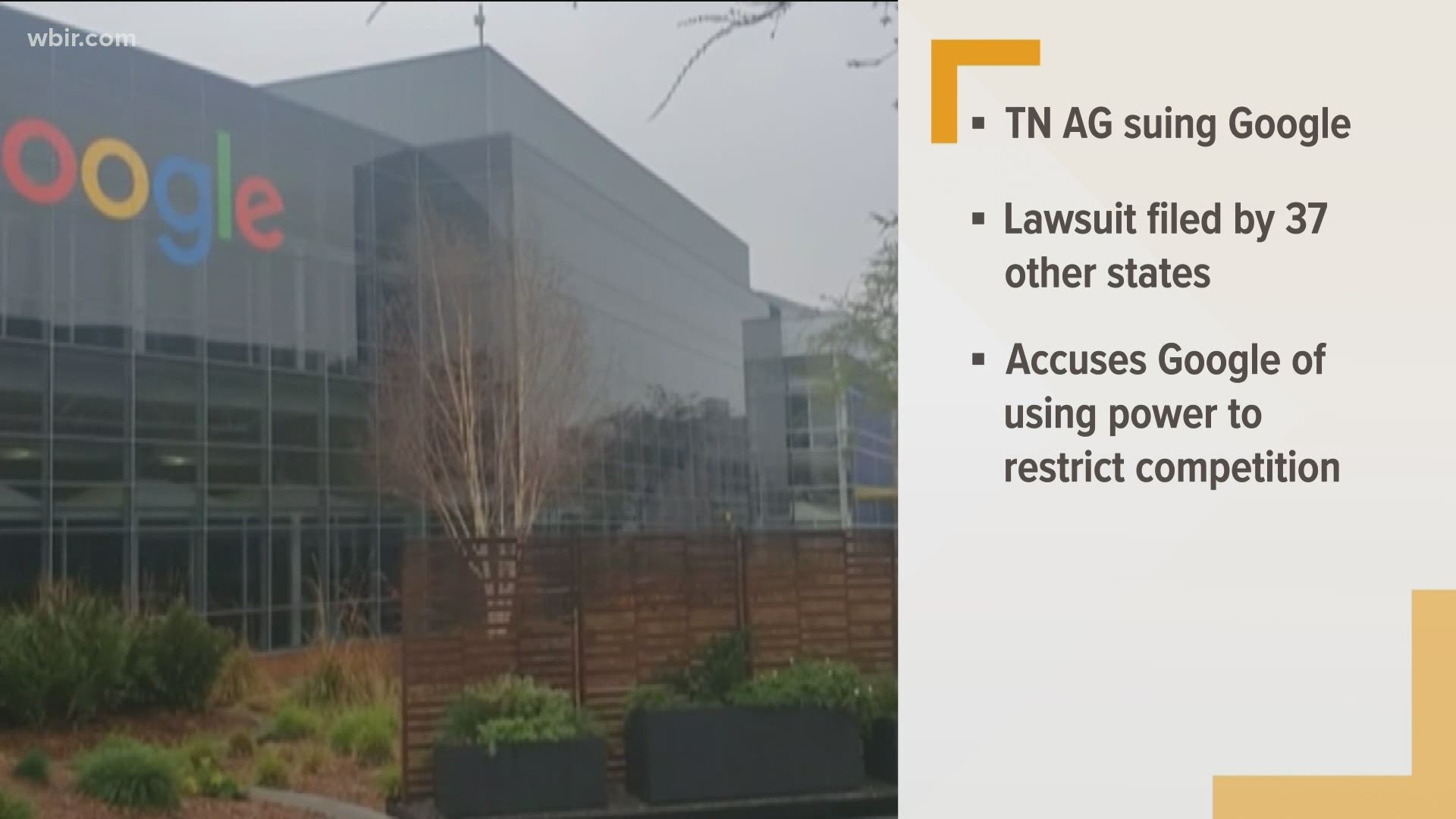TENNESSEE, USA — Dozens of states are taking aim at Google in an escalating legal offensive on Big Tech.
This time, attorneys general for 36 states and the District of Columbia have filed a lawsuit targeting Google's Play store, where consumers download apps designed for the Android software that powers most of the world's smartphones.
Attorney General Herbert H. Slatery III is jumping onto a lawsuit as well.
The suit claims that Google uses illegal, anticompetitive, and unfair business practices. Slatery is accusing Google of using its power to restrict competition with the Google Play Store which is, in turn, causing harm to consumers by limiting their choices. Slatery also claims that is driving up app prices.
“Google’s ‘play’ was the long game-enticing manufacturers and operators to adopt Android by promising to remain open,” General Slatery said. “Now that digital doorway is closed- if you want in, you’ve got to do it Google’s way. You essentially have to use its app store, use its payment processing system, and pay its unreasonable commissions for digital purchases. All of this harms consumers, limits competition, and reduces innovation. Tennessee and 36 other states are no longer on the sidelines.”
The Attorneys General claim that Google works to discourage or prevent competition, which they say is a violation of federal and state antitrust laws. They also allege:
- Google imposes technical barriers that strongly discourage or effectively prevent third-party app developers from distributing apps outside the Google Play Store. Google builds into Android a series of security warnings (regardless of actual security risk) and other barriers that discourage users from downloading apps from any source outside Google Play Store, effectively foreclosing app developers and app stores from direct distribution to consumers.
- Google has not allowed Android to be truly “open source” for many years, which has cut off potential competition. Google forces OEMs that wish to sell Android to enter into agreements called “Android Compatibility Commitments” or ACCs. Under these “take-it-or-leave-it” agreements, OEMs must promise not to create or implement any variants of Android that deviate from the Google-certified version.
- Google’s contractual requirements foreclose competition by mandating that the Play Store and many other Google apps be “pre-loaded” on essentially all devices designed to run on the Android OS and that they be given the most prominent placement on device home screens.
- Google “buys off” its potential competition in the market for app distribution. Google has successfully persuaded OEMs and MNOs not to compete with the Play Store by entering into arrangements that reward OEMs and MNOs with a share of Google’s monopoly profits.
- Google forces app developers and app users alike to use Google’s payment processing service, Google Play Billing, to process payments for in-app purchases of content consumed within the app. Thus, Google is unlawfully tying the use of Google’s payment processor, which is a separate service within a separate market, for payment processing within apps, to distribution through the Google Play Store. By forcing this tie, Google can extract an exorbitant processing fee as high as 30% for each transaction which is more than ten times what other payment processors charge.
The other states that are on the lawsuit are Utah Attorney General Sean D. Reyes, New York Attorney General Letitia James, North Carolina Attorney General Josh Stein, and Tennessee Attorney General Herbert H. Slatery III. States joining the lawsuit include Alaska, Arkansas, Arizona, California, Colorado, Connecticut, Delaware, District of Columbia, Florida, Idaho, Indiana, Iowa, Kentucky, Maryland, Massachusetts, Minnesota, Mississippi, Missouri, Montana, Nebraska, Nevada, New Hampshire, New Jersey, New Mexico, New York, North Carolina, North Dakota, Oklahoma, Oregon, Rhode Island, South Dakota, Tennessee, Utah, Vermont, Virginia, Washington, and West Virginia.

